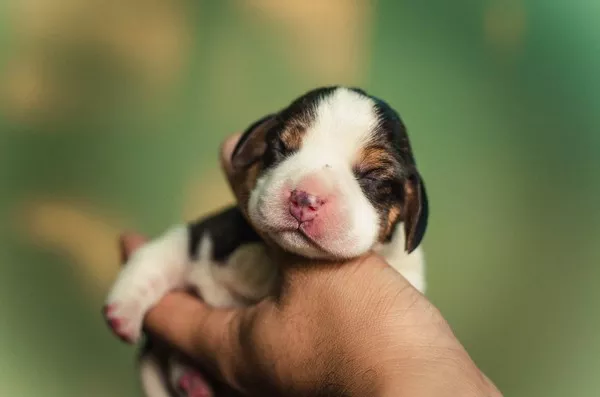Devon Rex cats, known for their playful demeanor, affectionate nature, and distinctively curly coats, have captured the hearts of cat lovers worldwide. However, a common question arises among potential and current owners: how long do male Devon Rex cats live? While life expectancy can vary based on several factors, understanding the breed’s characteristics, health considerations, and care requirements can provide insights into their longevity. This article aims to explore the various aspects of male Devon Rex cat life expectancy, including genetics, lifestyle, health care, and environmental influences.
Understanding the Devon Rex Breed
Historical Background
The Devon Rex originated in the 1960s in Devon, England. A unique genetic mutation led to the curly coat that defines the breed. Unlike other breeds with similar coat types, the Devon Rex has a distinctively short and wavy fur that requires less grooming. The breed gained recognition for its charming personality and striking appearance, quickly becoming a popular choice among cat enthusiasts.
Physical Characteristics
Devon Rex cats are small to medium-sized felines with a distinctive appearance. They have large ears, a narrow face, and a slender, muscular body. Their coat is soft and short, with minimal shedding, making them ideal for allergy sufferers. Males typically weigh between 8 to 12 pounds, with females being slightly smaller. Their unique physical traits contribute to their overall health and longevity.
Temperament
Known for their playful and affectionate nature, Devon Rex cats thrive on interaction with their human companions. They are highly social, often forming strong bonds with their owners and other pets. Their playful antics, intelligence, and curiosity make them engaging companions. This sociable nature is essential to consider when evaluating their overall well-being and longevity.
Life Expectancy of Male Devon Rex Cats
Average Lifespan
The average lifespan of male Devon Rex cats typically ranges from 12 to 15 years, although some individuals may live longer with proper care. Factors such as genetics, lifestyle, and health care play significant roles in determining life expectancy. Understanding these factors can help owners make informed decisions about their pet‘s health and well-being.
Factors Influencing Lifespan
1. Genetics
Genetics plays a crucial role in determining the lifespan of any breed, including the Devon Rex. While Devon Rex cats are generally considered healthy, certain genetic predispositions can impact their longevity. Conditions like hypertrophic cardiomyopathy (HCM), a common heart disease in cats, have been identified in this breed. Regular veterinary check-ups and screenings can help identify potential genetic issues early, allowing for proactive management.
2. Diet and Nutrition
Proper nutrition is vital for the overall health and longevity of male Devon Rex cats. A balanced diet rich in essential nutrients, vitamins, and minerals supports their immune system and overall well-being. High-quality cat food formulated for their specific life stage (kitten, adult, or senior) is essential for maintaining their health. Overfeeding can lead to obesity, a condition that can significantly reduce a cat’s lifespan and quality of life.
3. Regular Veterinary Care
Routine veterinary care, including vaccinations, dental care, and regular health check-ups, is essential for identifying and preventing health issues. Regular screenings for genetic conditions, such as heart disease, can also provide peace of mind to owners. Ensuring that male Devon Rex cats receive regular veterinary care can significantly influence their lifespan and quality of life.
4. Exercise and Mental Stimulation
Devon Rex cats are active and playful, requiring regular exercise and mental stimulation to remain healthy. Engaging them with toys, interactive play, and puzzle feeders can help keep their minds sharp and their bodies fit. A sedentary lifestyle can lead to obesity and related health issues, impacting their longevity. Providing an environment rich in stimulation is essential for their overall health.
5. Environmental Factors
The environment in which a Devon Rex cat lives can significantly impact its lifespan. Indoor cats typically live longer than outdoor cats due to reduced exposure to hazards such as traffic, predators, and diseases. Creating a safe, enriching indoor environment can help extend their lives. However, for those who wish to provide outdoor access, supervised outdoor time or a catio can offer a safe compromise.
Health Conditions Affecting Lifespan
1. Hypertrophic Cardiomyopathy (HCM)
Hypertrophic cardiomyopathy is a heart condition that affects many cat breeds, including the Devon Rex. This condition causes the heart muscle to thicken, leading to potential heart failure. Regular veterinary check-ups and heart screenings can help detect HCM early, allowing for management strategies to improve quality of life and longevity.
2. Skin Issues
Due to their unique coat, Devon Rex cats may be prone to certain skin conditions. Regular grooming can help prevent skin issues, but owners should also be vigilant for signs of irritation or allergies. A healthy coat contributes to overall health, and addressing skin issues promptly can prevent complications.
3. Dental Health
Dental issues are common in cats, including Devon Rex. Periodontal disease can lead to pain, infection, and other health complications. Regular dental care, including professional cleanings and at-home dental hygiene practices, is vital for maintaining a male Devon Rex’s overall health and extending their lifespan.
Improving Lifespan Through Care
1. Proper Nutrition
Choosing the right diet for a Devon Rex cat is essential for their health and longevity. Owners should select high-quality cat food formulated for their specific needs, taking into account age, weight, and activity level. Regular feeding schedules and portion control can help prevent obesity and associated health issues.
2. Regular Vet Visits
Establishing a routine for veterinary check-ups is critical for maintaining a male Devon Rex’s health. Routine vaccinations, health screenings, and preventive care can help catch potential health issues early. Owners should also stay informed about breed-specific health risks and work with their veterinarian to monitor their cat’s health.
3. Engaging Environment
Creating a stimulating environment for a Devon Rex cat can enhance their mental and physical well-being. Providing interactive toys, climbing structures, and opportunities for play can help keep them active and engaged. Regular playtime with their owners fosters a strong bond and promotes a healthy lifestyle.
4. Grooming
Despite their low-maintenance coat, regular grooming is essential for a Devon Rex cat. Bathing can help remove excess oils and dirt from their skin and coat, promoting skin health. Regular grooming also allows owners to check for any skin issues or abnormalities that may need veterinary attention.
Understanding Aging in Male Devon Rex Cats
As male Devon Rex cats age, they may experience various changes in their physical and mental health. Understanding these changes can help owners provide the necessary support to ensure their feline companions remain comfortable and happy.
Physical Changes
1. Decreased Energy Levels
As cats age, they may become less active and require more rest. Owners should adjust playtime and exercise routines to accommodate their cat’s changing energy levels.
2. Weight Management
Weight gain is common in older cats due to decreased activity levels. Monitoring their diet and ensuring they receive appropriate exercise can help manage their weight and prevent obesity-related health issues.
3. Joint Health
Older cats may develop arthritis or joint pain, affecting their mobility. Providing soft bedding, easy access to litter boxes, and gentle play can help support their joint health. Supplements and medications prescribed by a veterinarian can also be beneficial.
Mental Changes
1. Cognitive Function
Similar to humans, older cats may experience cognitive decline. Signs of cognitive dysfunction can include disorientation, changes in sleeping patterns, or altered behavior. Engaging them with mental stimulation and maintaining a consistent routine can help support their cognitive health.
2. Behavioral Changes
Aging cats may exhibit changes in behavior, such as increased vocalization or changes in litter box habits. Understanding these changes and consulting with a veterinarian can help address any underlying health issues.
Conclusion
Male Devon Rex cats typically have a lifespan of 12 to 15 years, but several factors influence their longevity. Genetics, nutrition, veterinary care, exercise, and environmental conditions all play critical roles in determining a cat’s health and lifespan. By understanding the unique characteristics and needs of the Devon Rex breed, owners can take proactive steps to ensure their feline companions lead healthy, fulfilling lives.
With proper care, attention, and a commitment to their well-being, male Devon Rex cats can thrive and bring joy to their owners for many years. By fostering a loving and stimulating environment, addressing health concerns proactively, and providing excellent nutrition, you can help ensure that your male Devon Rex enjoys a long, healthy life filled with love and companionship.
Related Topics:





















